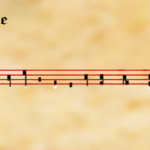Over at Instapundit, Glenn Reynolds links to a letter from the editor that may be cause for both delight and concern.
The version of the Rift I tested felt like a pair of heavy ski goggles, and it did seem a little dorky to be fixing and tightening the various headbands and supports. But an amazing transition happened as my eyes resolved a new field of vision. I blinked, and while my brain remembered (for a moment) that I was sitting in my office, my eyes told me I was somewhere completely different. And then, in an instant, my brain joined my eyes, and I was there. It was seamless, and it was crazy.
I went from sitting in a third-floor room in San Francisco to standing on a castle turret in an underground cavern. Looking up, I saw a new ceiling. Looking down and leaning out over the wall, I was—holy shit!—teetering at the rim of a deep canyon with molten lava flowing through it. Some part of my cerebral cortex knew I was perfectly safe, but that lean had my limbic system utterly fooled. I felt a twinge of vertigo; my stomach flipped. I was positive I could fall over the edge. I had to pull back. And then I started laughing.
But there’s nothing comical about the implications of a world where virtual reality is, well, real…Sometimes you can’t believe that sci-fi dreams come true, and then one day, quite suddenly, they are right in front of your face.
It sounds exhilirating and terrifying. One readily can imagine all of the truly positive and useful applications and the mind boggles. What a boon to education — imagine a student surgeon (or an inventive one) putting the virtual scalpel to as many dry runs as necessary before perfecting a technique, with programs that can present any possibility within the surgery — first do no harm, indeed! A musician “practicing” his instrument in the wee small hours without disturbing neighbors. A victim of paralysis might be able to replicate the experience of skiing the alps; someone like me — gimpy with arthritis — might again experience the joy of a long run. The educational and medical possibilities would be endless and it would all come with a patina of “entertainment’ and who doesn’t love that?
Instead of merely learning about great moments in human history, one will soon be able to experience them. Suddenly there is a possibility that you or I might be right there with Neil Armstrong, walking upon the moon, or storming the beaches of Normandy, or fighting at Gettysburg (if one were to die in Virtual Reality, I wonder how the brain would react to that?) or sailing with Marco Polo and discovering the Silk Road, or wailing, helplessly, at a crucifixion, or crossing the sea on foot, with the waves held back on either side. Or even rationalizing one’s way into eating an apple.
But then, of course, one considers all of the questions about ways in which the thing can be abused, or might negatively impact our social and personal psychology. Could someone experience what it is like to kill another human being, in VR, and then have to deal with one’s own reactions to having done so, whether that be a feeling of oppressing guilt or inhuman glee? Might we be able to indulge our sexual imaginings, or our resentments, or our deepest pleasures so far that they bring us to the dark places, where our perceptions of humanity can become distorted and we become socially “desensitized” in new and unprecedented ways? We human creatures are prodigious at finding ways to rationalize our self-indulgences.
The more free rein we give to our imaginings, the faster and farther they gallop but that is, increasingly, as bad a thing as it is good. The mind reaches into infinity, but can never grasp all that may be known. A machine like this can quickly build on our illusion that we have seen it all, thought it all; been there, done that; man-and-machine are wed.
The very limitlessness of VR could paradoxically become the means of a boredom so keen it may force us to search for ways to reconnect with basic realities of the human condition — love, hate, anger, dependence, sacrifice, joy, connection! — and then to give them fresh expression. We will perhaps see the resurgence, then, of the simple troubadour. Or the psalmist.
The mind is a wonder, isn’t it? Mine has just imagined VR all the way past its usefulness, back to a simple singer on a street.













